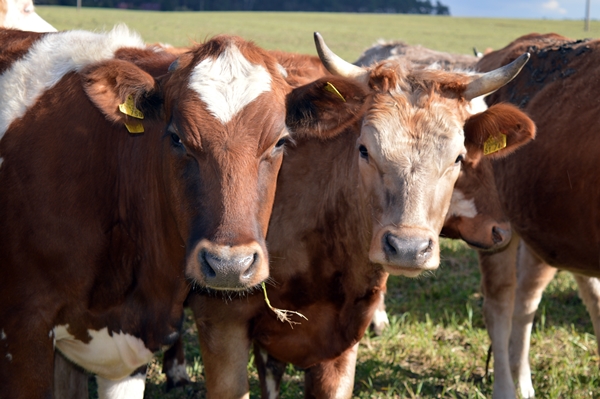7 September 2016. A biotechnology company in South Dakota is developing an influenza therapy, with backing from a National Institutes of Health program supporting research by small enterprises. The 2-year, $1.4 million grant from National Institute of Allergy and Infectious Diseases, part of NIH, is funding the work of SAB Biotherapeutics Inc. in Sioux Falls.
Influenza is a respiratory illness spread by viruses, and a continuing seasonal public health problem in the U.S. and elsewhere. While inexpensive and widely available vaccines can prevent the spread of flu in the population, infants, people older than 65, and pregnant women are among those at higher risk of flu-related complications. A few anti-viral drugs to treat influenza symptoms are available by prescription, and are recommended for patients at high risk of complications.
In this project, SAB Biotherapeutics and the medical school at University of South Dakota are collaborating on extending the company’s technology to influenza. SAB produces human antibodies from genetically engineered cattle, with techniques that prevent harm to the animals, which are plentiful and well-studied in agriculture. And because of their large size, cattle can produce large quantities of the desired antibodies. As reported in Science & Enterprise earlier this year, the company was part of a team developing therapeutic antibodies to treat Middle East respiratory syndrome coronavirus, or MERS virus.
The new study follows-up on a proof-of-concept project that demonstrated the feasibility of producing therapeutic antibodies to treat influenza. In the new project, researchers will immunize genetically engineered cattle with the 2015-2016 seasonal flu vaccine to generate antibodies for treatments, as well as verify the presence of the antibodies in blood serum.
The team will then manufacture purified human antibodies to treat influenza, and perform quality and stability tests. The researchers will use those antibodies in preclinical tests in lab cultures and in animals, including toxicology and chemical reactions in the body. Tests with monkeys are also planned, although they will be funded separately from the grant. The preclinical tests are expected to generate the documentation needed for an investigational new drug application with Food and Drug Administration, authorizing clinical trials.
The award is made under NIH’s Small Business Innovation Research, or SBIR, program that sets aside research money for early-stage small enterprises. The project grew out of a statewide program in South Dakota known as BioSNTR — pronounced “bio-center” — connecting academic and business labs to study new technologies affecting animal and human health. BioSNTR provided the initial $50,000 in seed money to get the project underway.
Read more:
- Common Antibodies Found for Multi-Virus Flu Vaccine
- St. Jude Hospital to Test Nanotech Flu Virus Drugs
- Influenza A Therapy Shown Working in Trial
- Simple Avian Flu Test Designed for Poultry
- RNA Flu Therapy Clinical Trials Complete Enrollment
* * *


 RSS - Posts
RSS - Posts
You must be logged in to post a comment.